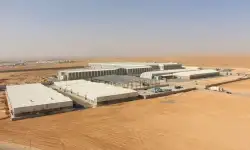Egypt’s Industry and Transport Minister, Kamel Wazir, announced the launch of the eighth phase for offering industrial lands through the “Made in Egypt” Digital Industrial Platform. This initiative, spearheaded by the Industrial Development Authority (IDA), runs from December 1 to 8 and aims to invigorate local production and enhance export capabilities.
The offering includes a whopping 2,612 plots of land, encompassing a vast total area of 15.207 million cubic meters, strategically located across 37 industrial zones in 24 governorates. These zones span major regions such as Cairo, Giza, Alexandria, and others, reflecting a widespread effort to decentralize industrial growth and stimulate economic activities in various parts of the country.
This development is a cornerstone of the ministry’s strategy to jump-start production, localize industries, and ultimately boost exports. According to a recent report by the Egyptian Center for Economic Studies, this initiative is expected to significantly increase the manufacturing sector’s contribution to GDP, aligning with the government’s Vision 2030 objectives.
To entice potential investors, the IDA is rolling out an array of facilities and incentives. “We are committed to creating a conducive environment for industrial growth,” Minister Wazir stated during a press briefing, emphasizing the importance of this initiative in attracting both local and international investors.
Industry specialists have lauded this move, noting its potential to transform Egypt’s industrial landscape. Dr. Hala El Said, Egypt’s Minister of Planning and Economic Development, highlighted the anticipated creation of jobs and the development of new supply chains. “This strategy positions Egypt as a competitive player in the global industrial market”
Furthermore, industry insiders suggest that these offerings could lead to increased foreign direct investment (FDI) inflows, with preliminary interest reportedly shown by manufacturing giants from Asia and Europe. Such investments could be pivotal in diversifying Egypt’s industrial output, currently dominated by textiles and chemicals.
Egypt’s proactive measures to bolster its industrial sector are seen as a timely and strategic. This initiative not only aims to meet domestic demands but also targets an expansion into new markets, thereby reinforcing Egypt’s footprint in the global industrial domain.



